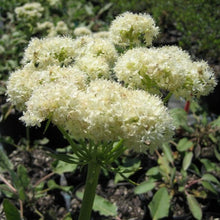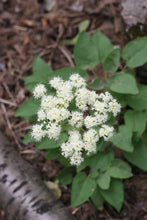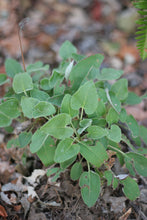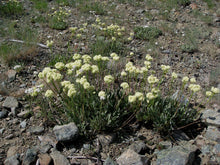
Eriogonum compositum
Arrowleaf buckwheat is such a cool plant that is relatively uncommon in the garden and nursery setting. This low-growing perennial is extremely drought-tolerant and spreads into shrubby mats over time. In late spring and summer, clusters of creamy white tubular flowers balance on tall stalks, resembling puffy clouds that will beckon butterflies and bees to your garden. True to its name, the leaves of this plant are shaped like arrowheads that start out the season bright green, with diagnostic white undersides, and transform into pleasing fall tones in Sept and October.
- Plant type/canopy layer: deciduous, perennial, herbaceous plant
- Size at maturity: 6”-24” tall, 6”-12” wide
- Light requirements: full sun to light shade
- Moisture requirements: dry to moist soil, extremely well-drained
- Bloom time: May - July
- Growth rate/ease: fast growing, easy to grow
- Wildlife support: flowers are an important nectar source for adult butterflies, bees and other insect pollinators; seeds provide food for birds and small mammals; overall plant attracts and supports beneficial and pest-eating insects and is a caterpillar host and larval food source for native butterflies and moths
- Native habitat/range: commonly found growing on open rocky slopes, sandy loam, and gravel, from sea level to 2750m, primarily east of the Cascades. Portland Plant List - no.
- Special features & uses: pollinator plant; extremely drought tolerant; medicinally used as a cold remedy, an antidiarrheal, and a wash for infected cuts; landscape uses include pollinator gardens, meadowscapes, rock gardens
Gardening with Arrowleaf Buckwheat: This uncommon garden plant will thrive in sunny areas that are rocky or sandy and extremely well-draining. Consider pairing with other drought-tolerant perennials, such as asters, Oregon sunshine and bunchgrasses in exposed pollinator and/or rock gardens.
Photo Credits 1 & 4: Seven Oaks Natives
Photo Credits 2 & 3: Karli Del Biondo, Beetles and Bees







